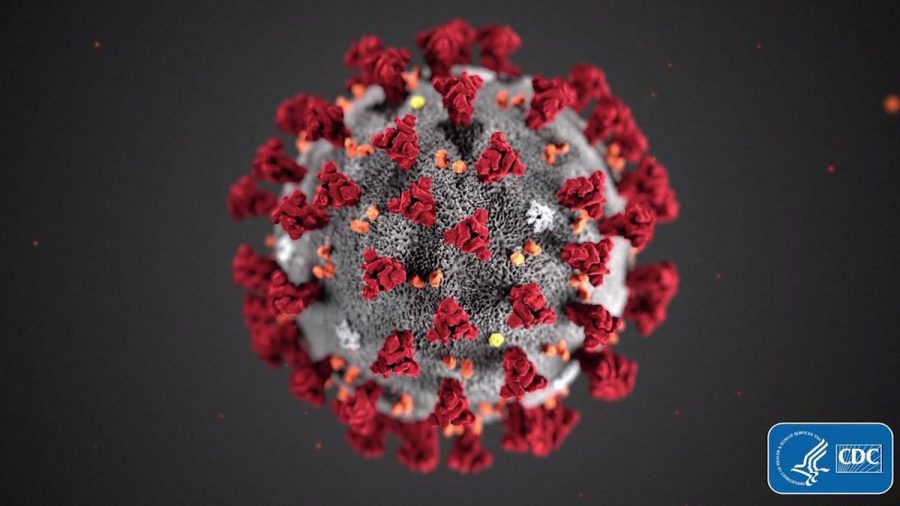What is Novel Coronavirus (COVID-19)?
The following article was published before FCPS’ decision to shutdown for the remainder of the school year. The medical advice is still relevant.
Novel Coronavirus or COVID-19 gets its name from its crown-like (corona) spikes. The “novel” references its newness as a cold virus variation.
March 24, 2020
Coronavirus. Everyone’s talking about it, but is it really as bad as it seems?
First, let’s start with what Coronaviruses are. Coronaviruses are zoonic, which means they are common among animals, such as bats, camels, and cats, but rarely spread to humans. The current outbreak is a novel (or new) Coronavirus, COVID-19, and first appeared in humans in Wuhan, China. Scientists believe that this current strain may have been caused by the disease jumping from bats onto humans at a seafood market in Wuhan, but the true source is not certain. Since then, Coronavirus has spread from person-to-person through close contact, coughs, or sneezes and caused flu or cold-like symptoms to those who have caught it. As of March 2, there are around 85,000 cases worldwide and the death toll had risen to 3,000.
This may seem scary, but should we be this worried?
To find out, I interviewed Ronald Martin on March 2, the Exploring Health Sciences, Language of Medicine, and Biotech teacher at West Potomac Academy. Martin was formerly a navy corpsman for 26 years, where he took care of marines medical requirements on ships when doctors were not present.
In regards to our current safety, he does not consider the virus to be a major threat in the United States and elaborated on the precautions we should be taking when it comes to coronavirus.
“It is “low risk” right now in the United States,” Martin said. “But in order to keep ourselves well from any kind of virus, we should wash our hands, stay away from sick people, stay home if we’re sick, and go about our daily activities.”
In the media, Coronavirus is often being compared to Influenza, commonly known as the flu, as both have extremely similar symptoms and methods of spreading. However, as time passes, scientists are able to gather more data about each virus’ death rate and contagiousness that set them apart. Despite this, Martin believes that we should have the same approach as we take with the flu because we “don’t want to get sick with either one of them.”
In other counties neighboring FCPS, a few students have withdrawn from traditional schooling and opted for online courses as an alternative in wake of the Coronavirus. When asked about this subject, Martin believed that such actions were too extreme for the present time. [Editor’s note: this applies to the county’s response in early March].
“I don’t think we need to do that right now because most people in the building aren’t sick. As long as you wash your hands and take care of yourself as you would any situation, there’s no use in changing your daily routine, like not going to school or work,” Martin said.
What about FCPS? Since none of the students here at Lee, or any other school within our community have been diagnosed with the virus, we have little chance of shutting down for the time being. However, in any situation like this, factors can change and Martin gave us his best estimation on what would happen for schools to begin to close.
“Schools would probably shut down if a cluster of students and/or faculty were sick in one building. If [Lee] has more than a few students, especially if they’re from the same classroom or grade, catch Coronavirus, then its time to start looking at closing it down for a period of time until it clears up,” Martin said.
This all may seem worrisome, but for now, your best chance at avoiding catching Coronavirus is practicing good hygiene and staying calm. Washing your hands multiple times a day, especially after being in a public place, or disinfecting items like cell phones are all ways you can proactively better your chances of staying healthy.

